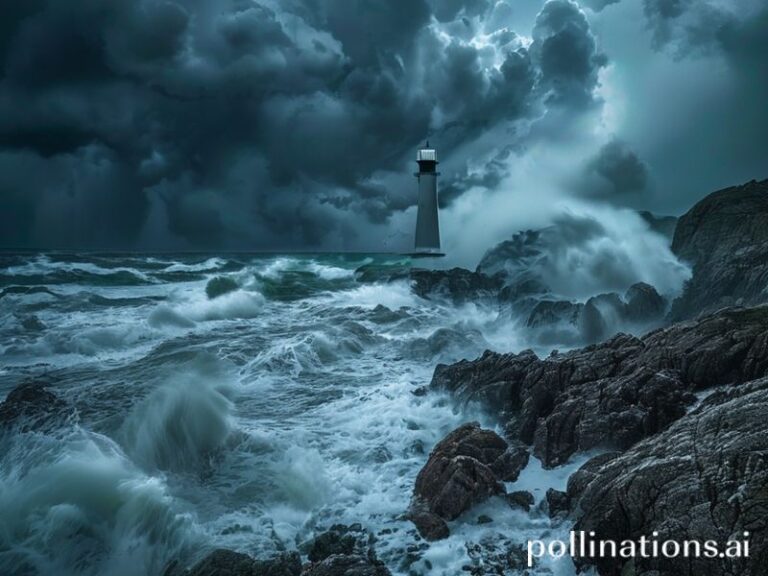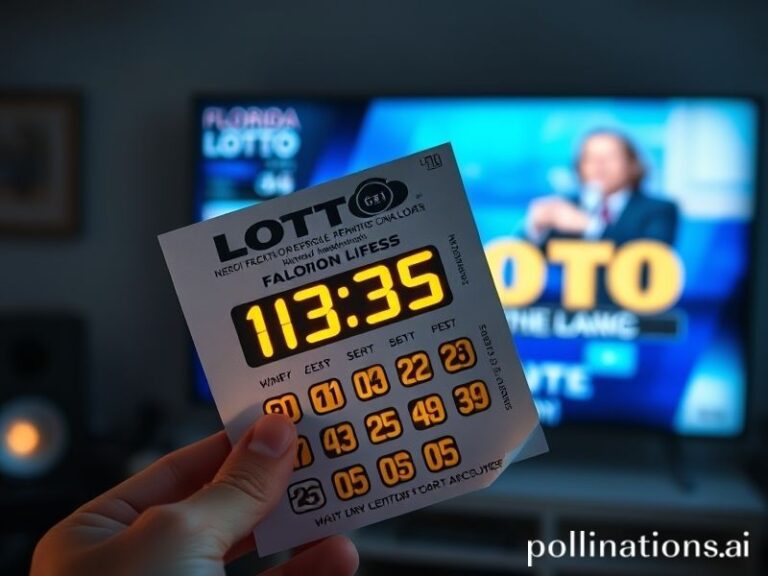Venezuela: The World’s Longest-Running Cautionary Tale Refuses to Close
Caracas, 3 a.m.: the lights are out again, but the jokes keep coming. A Venezuelan friend texts me, “We’re the only country where the national sport is guessing whether the blackout lasted longer than the last government promise.” The world, distracted by newer, shinier catastrophes, still sends the occasional sympathy emoji—then swipes right to the next crisis. Yet Venezuela refuses to be archived. Like a barfly who’s drunk the place dry but still holds the lease, it lingers at the geopolitical counter, muttering prophecies the rest of us pretend not to hear.
Let’s zoom out. The hemisphere’s largest proven oil reserves sit under a nation where gasoline lines now resemble 1970s rock-concert queues—minus the music, plus machetes. This is not merely tragic; it’s instructive, a master class in how to weaponize resource wealth against your own population. While Moscow weaponizes gas for leverage and Riyadh weaponizes oil for golf tournaments, Caracas has pioneered the meta-move: weaponizing scarcity itself. If that sounds avant-garde, remember that suffering is the one export Venezuela never had to embargo.
Globally, the Venezuelan diaspora has become the world’s most morbidly efficient talent pipeline. In Madrid, Uber drivers quote Rousseau between red lights; in Bogotá, arepa stands outnumber Starbucks four to one; in Miami, the phrase “back home” now triggers a multilingual PTSD support group. The UN counts nearly eight million refugees and migrants—roughly the population of Switzerland, except Switzerland has chocolate, functioning clocks, and a banking sector that doesn’t answer to generals with epaulettes the size of small pets. These expats remit dollars, ideas, and occasionally Bitcoin back to relatives who measure inflation not in percentages but in existential dread. Capitalism, it turns out, adores victims who can code.
Meanwhile, the international community practices its favorite hobby: moral parkour. Washington alternates between sanctions, half-hearted negotiations, and the diplomatic equivalent of subtweeting. Brussels hosts conferences on “democratic transition,” a phrase that in Caracas sounds like “scheduled spontaneity.” Beijing loans cash in exchange for discounted crude, then quietly marks down the collateral when no one’s looking. The IMF offers technical assistance, which is like offering a cookbook to someone whose kitchen is on fire—useful, provided you ignore the flames and the chef’s gun.
Yet the Venezuelan telenovela keeps spinning plot twists. Last month Maduro and the opposition re-signed an agreement they’d already signed, unsigned, then re-signed—a document so thoroughly negotiated it could qualify for frequent-flyer miles. The deal promises “free elections” the way a casino promises free drinks: technically true, but you’ll pay at the tables. Observers from the Carter Center, the UN, and half a dozen NGOs will monitor the vote, armed with clipboards and the weary smiles of substitute teachers on prom night.
What does this mean for the rest of us? First, Venezuela is the stress test for every fashionable theory about the post-rules world order. Sanctions? Check—now we know they can starve a populace without dislodging a regime. Crypto salvation? Check—we learned that petro coins age about as well as unrefrigerated fish. Diplomatic “engagement”? Check—turns out photo ops, like avocados, have a 24-hour shelf life before turning brown and mushy.
Second, the country offers a dark preview of climate-crisis governance. When the grid collapses, grocery logistics mutate into Mad Max cosplay; when public health evaporates, measles and malaria return like boy bands on reunion tours. If you want to see how a petrostate copes with peak oil demand, Caracas is the unlit laboratory. Spoiler: the goggles do nothing.
Finally, Venezuela reminds us that national identity is surprisingly durable. Despite two decades of engineered amnesia, emigration, and economic lobotomy, people still debate whether arepas should be crispy or soft at 2 a.m. in WhatsApp voice notes. Culture, unlike the bolívar, doesn’t hyperinflate.
So pity Venezuela, yes—but also study it. The country is the world’s cautionary tale that got tired of being cautionary and became a recurring nightmare instead. And if you think it couldn’t happen where you live, remember: every empire keeps a Venezuela-shaped skeleton in its closet, waiting for the right blackout to rattle.







